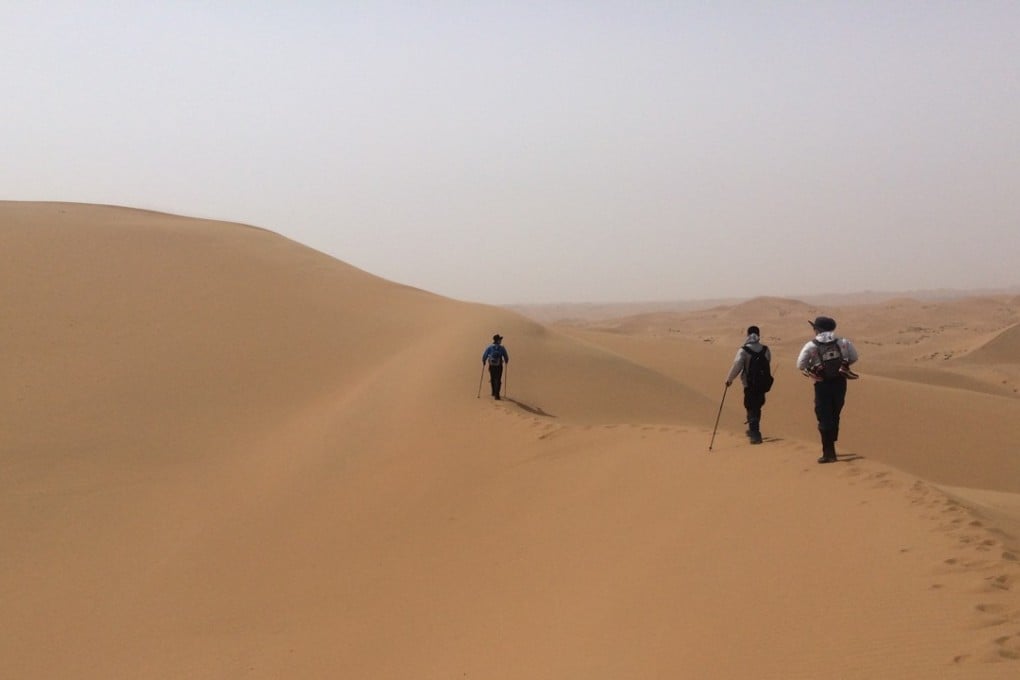Why Beijingers love to hike China’s remote Tengger Desert
On the southern edge of China’s Gobi Desert, a group of young professionals from the capital are on a three-day trek through the dunes of the Tengger

Days before we board our flight from Beijing to Yinchuan, in China’s northern Ningxia Hui Autonomous Province, we were scrambling to put together our equipment and supplies for three days of hiking in the Tengger Desert. We’re a group of 10 young professionals, Chinese and foreigners, living in the capital. Our group leader, Wu Chengpeng, is the only one who has taken the trip before – twice.
He warns us that the hike will be long and exhausting and will require stamina. The desert is no mountain when it comes to hiking. It will get hot during the day and freezing at night. We need specific equipment and supplies. We mustn’t stray from the group. It’s so easy to get lost.
From Yinchuan we ride a bus for about three hours, crossing into Inner Mongolia. As the craggy mountains turn into a field of bushes and then into sand dunes, a massive, strange gateway appears in the distance.
The search for Genghis Khan’s tomb
China wants to create a trade and infrastructure network across Eurasia, and as part of that, it is building roads through the desert, as well as random, eerie edifices. The driver tells us the road we are on is only a year old. Another, larger road is under construction a few kilometres away.
SUVs and dune buggies start popping up around us. This is desert country. We pull over, and ‘Shifu’, the driver we’ve hired to transport our luggage and supplies across the desert, helps us move stuff into his SUV. We wrap the sand covers around our ankles, apply sunscreen and start our trek through the desert.

When Wu signals our first break, it feels like we have been hiking forever. But it’s only been five kilometres. We have 40km and 2½ days to go.
